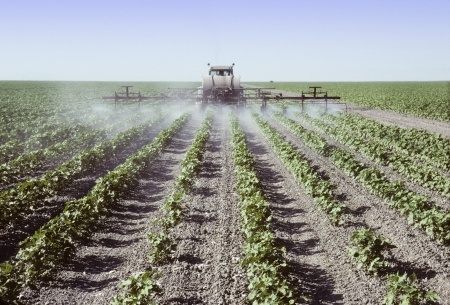In the introduction of this series, we reviewed how eating organic foods benefits us and determined that going beyond organic food can enhance our lives in many ways.
This time I will share what I’ve learned about some of the benefits we can enjoy by purchasing organic clothing for ourselves and our families.
Are Your Clothes Chemically-laden?
First, let me say that I love the idea of purchasing all organic clothing but I haven’t accomplished that yet. However, from what I’ve learned through my research which I’ll be sharing with you in this series, I’m even more excited about it.
One of the benefits of eating organic food is not having to worry about ingesting residues of harsh chemicals such as pesticides, insecticides and chemical fertilizers which have been shown to cause many health problems including allergies, immune dysfunction, and cancer.
Did you know that these same chemicals are found in your clothing unless they are organic?
You might be wondering why this is a problem since you don’t eat your clothes.
Well, the skin is the largest organ of the body and is very porous. In other words, what we put on it – good or bad – can be absorbed into the blood stream.
Clothing fibers break down over time. Imagine a plethora of chemicals breaking down and outgassing while you’re wearing your favorite outfit.
Having chemical sensitivity myself, I can attest to the negative health effects of wearing conventionally manufactured fibers. I’ve experienced irregular heart beats, headaches, and dizziness from wearing chemically-laden garments.
I’m not just referring to synthetics (chemically-based) which include nylon, acrylic, and polyester.
More Than ‘Natural’ Needed
Natural (plant- and animal-based) fabrics can be problematic as well. Let’s look at cotton as an example.

The conventional production of cotton involves a tremendous amount of pesticide use.
Your everyday cotton is one of the most chemically-laden fabrics. I’ve actually owned some 100 percent cotton garments that I just could not wear even after many washings. The production of cotton involves more than 25 percent of all pesticide use in the world. That amounts to nearly 50 million pounds of chemicals each year.
So, each year these chemicals are ending up on our skin, in our water, food, the air we breathe, and ultimately in us.
Alternatively, organic cotton is a much healthier option. It is grown without the use of pesticides, insecticides, and chemical fertilizers.
Also, the treatment process during the manufacturing of organic cotton fabric is a lot less toxic than its conventional counterpart. No harsh dyes or chemicals are used when transforming these fibers into our sweaters, scarves, pants, and other clothing items.
Five Health Benefits of Organic Clothing
With all of this in mind, you may have already thought of some of the health benefits of wearing organic clothing.
Here are five:
- Fewer chemical pollutants in the air – Since organic crops are not sprayed with chemicals, this diminishes the addition of pollutants into the air.
- Fewer chemical pollutants in the soil and drinking water – Organic farming does not contribute to chemical runoff.
- Less exposure of your child’s sensitive skin to chemicals. Children are more vulnerable to chemical exposure than adults.
- Fewer allergic reactions which includes skin rashes as well as other symptoms.
- Less exposure to formaldehyde – a known human carcinogen. Many conventionally manufactured clothing items are treated with formaldehyde – used to prevent significant wrinkling and to extend life of the garment – including those made with cotton.
Just these few improvements can make a huge difference in your quality of life.
Did you notice that some of the health benefits listed are also beneficial to our environment?
Next time, we will delve more deeply into how purchasing organic clothing improves our environment.
This is the second in a five-part series. You can find the other posts here:
Part 3: Organic Clothing Aids Environment
Part 4: More Benefits of Organic Clothing
Part 5: Is It Or Is It Not Organic?


